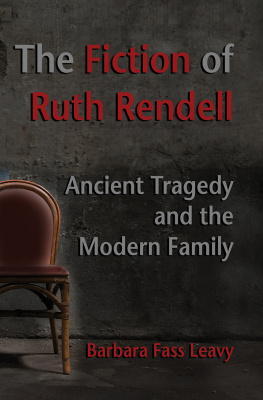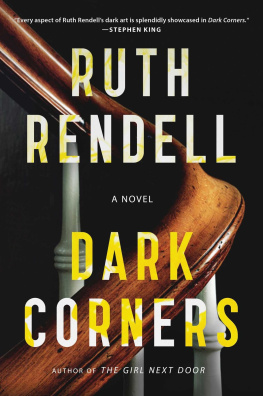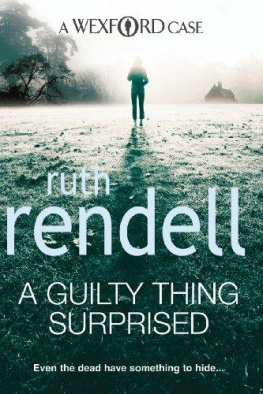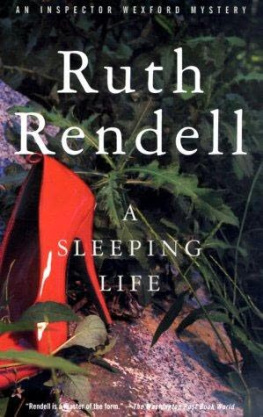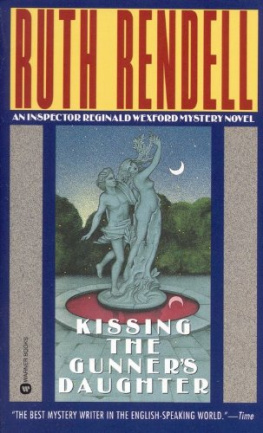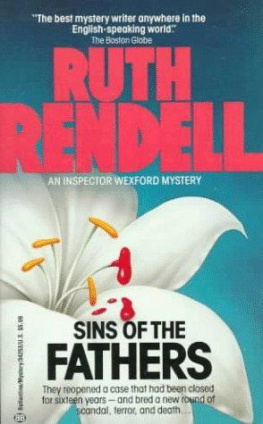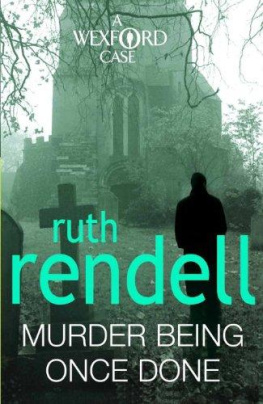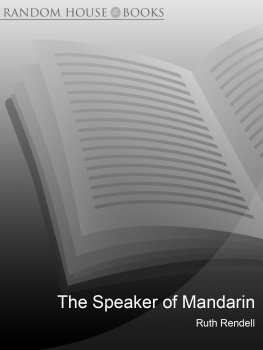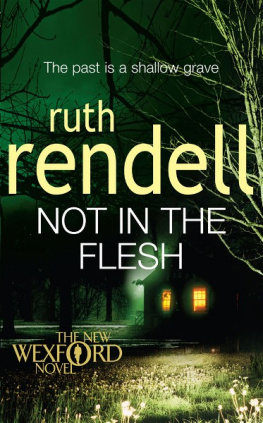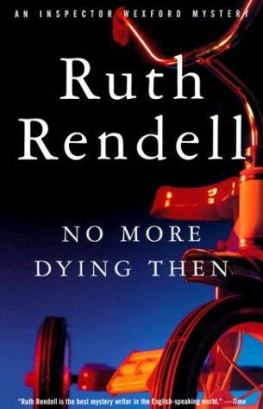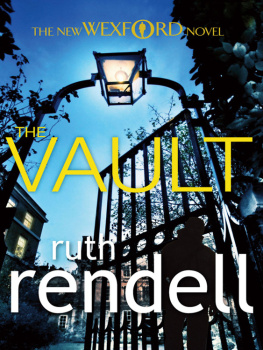The Fiction of Ruth Rendell
Ancient Tragedy and the Modern Family
Barbara Fass Leavy
www.BarbaraLeavy.com
Poisoned Pen Press
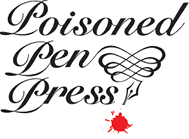
Copyright 2010 by Barbara Fass Leavy
First E-book Edition 2012
ISBN: 9781615953394 epub
All rights reserved. No part of this publication may be reproduced, stored in, or introduced into a retrieval system, or transmitted in any form, or by any means (electronic, mechanical, photocopying, recording, or otherwise) without the prior written permission of both the copyright owner and the publisher of this book.
The historical characters and events portrayed in this book are inventions of the author or used fictitiously.
Poisoned Pen Press
6962 E. First Ave., Ste. 103
Scottsdale, AZ 85251
www.poisonedpenpress.com
Contents
This book is dedicated to my mother,
Marion Widom
1918-2005
The Fiction of Ruth Rendell
If Ruth Rendell had given another name to a pet dog in one of the novels in her Wexford series, this study of her fiction might never have been written. But with a flash of humor and perhaps tongue-in-cheek irony, Rendell named the dog Clytemnestra, a character from Greek tragedy who conspired to murder her husband and was in turn vengefully murdered by her own son, who was egged on by her daughter Electra. The pet did not live up to its name, or to this compelling but horrific story. Sheila Wexford, who had taken on its care so a boyfriend could go on a trip, foisting this responsibility onto her reluctant parents, had called it an Acrylic Swoofle Hound because it looked as if it were made of man-made fibers. A disgruntled Reg Wexford thought that Clytemnestra was a stupid pretentious name for a dog. I, in turn, was amused by this moment in the inspectors family life.
And then, suddenly, I was not amused at all. Something clicked in that part of the mind that no one can really locate, a place in which half-formed thoughts, scarcely articulated ideas, and remote connections begin to come together. For a long time I had been thinking about writing a book on crime fiction, and I had been contemplating three subjects. Now my choice was made.
The dogs name might have been amusing, but the mythical Clytemnestra was anything but. She and her daughter Electra, who loathed her mother, formed a paradigm, although an extreme one, for one of the most unexplored of family relationships, mothers and daughters. I was vaguely familiar with an Electra complex, although I rarely saw it alluded to, but because I grew up and was educated in a culture that emphasized the so-called universality of Freuds Oedipus complex, I knew almost nothing about writing on uniquely female psychological development. Where could I find Electra? I began rereading Ruth Rendells fiction, looking for this driven, angry woman, and ideas I had been forming about Rendells books, as well as my responses to her writing, became clarified.
Readers of crime fiction know that my ah-ha! experience is a common narrative motif. An investigator receives a piece of seemingly inconsequential information or recalls a word or phrase in a conversation whose importance had been previously overlooked or stumbles across some evidence that takes on special significance because, suddenly, the pieces of the puzzle come together and point to the solution to a baffling crime. I, too, was confronting a mystery. Or rather, two mysteries, one professional and one personal.
The professional one had to do with my immersion in Ruth Rendells fiction, whose hold over me was unprecedented. A mystery addict from my early adolescence, I had come to think of the genre as my escape from the work I did as a literary critic and teacher of, mainly, nineteenth-century British literature, works of fiction and poetry that I was to find alluded to throughout Rendells books. It was fairly late in my career that the English department where I taught had started offering courses in mysteries, and I had asked to teach them. I needed relief from a very intense project that had taken me almost twenty years to turn into a book. I needed some fun! But now it was no longer enough for me merely to enjoy a mystery. I had to think about what I might say about it in class, fitting it into a course that had a shape and direction. One thing I knew for certain was that for me, characters in a book had always been almost as real as the actual people in my life. Why were those in a Ruth Rendell novel even more so, as familiar as my friends and acquaintances, the neighbors across the hall, even some members of my own family? Why did they take on a life for me I had never before experienced? I would find my answer to that in the more personal mystery I had to confront.
Ruth Rendell has said in interviews as well as in her books that the ultimate mystery is never whodunit but is rather why people act as they do. It is for her a question that can never be fully answered. Fully understood reasons for crimes cannot be reduced to commonplace motives, such as greed, sex, or jealousy. Investigators can identify the perpetrators of crimes, and prosecutors can help convict the criminals, but neither police nor prosecutors can ever fully explain them. Her recent novels infer that authors whose work supplies such self-sufficient explanations may be falsifying reality.
Ruth Rendells novels suggest a corresponding mystery that is perhaps even more difficult to grasp. In one of her books, a character alludes to the Oracle at Delphi and its command that visitors to this ancient shrine should know themselves. I have to find myself was a rallying cry of young people in the 1960s and 70s as they left home to join communes or to find spiritual gurus, often in remote parts of the world. Such quests do not work in a Ruth Rendell novel, yet this need for self-knowledge predominates as one of her themes throughout her books. To know themselves, her characters keep journals, tell stories, write books about family members, or attempt to solve mysteries that surround their families. They try to find the missing pieces of a diary or a notebook that are really symbols of the blank spaces in their lives.
I wrote this book.
I had come to a point in my life where the quality of my relationships with my daughter and son, their spouses, and my grandchildren would largely depend on knowing myself. Like many Ruth Rendell characters, self-awareness would depend on coming to terms with my own parents. In virtually every Ruth Rendell book that I read, I found my own family life, sometimes distorted in its extremes, sometimes quite realistic and close to my own experience. Never had I read an author whose understanding of family dynamics was as acute and as dramatically rendered as hers. And realizing this, I became convinced of the reason for her hold on so many of her devoted readers, those who were willing to open themselves up to what she depicted, and those who only let their unconscious respond. In the pages of this otherwise objective literary study, I follow not only her stories but my own psychological quest to know myself. Although I had had professional counseling to achieve self-awareness, in the end it was Ruth Rendells fiction that allowed me to put the puzzle pieces together. This book is an objective study of Ruth Rendells work, the kind of literary criticism I had been trained to do and that formed the basis of the four previous books I had published. But between the lines of this study, there is always, I realize, myself.
To some extent, whatever an author or critic writes about is a reflection of that person. Or even what that author does not write. In one of Ruth Rendells novels, The Blood Doctor, the protagonist sets out to write a biography of his great-grandfather and in the process learns much about himself. Achieving self-knowledge and appalling awareness of his family history, he decides not to finish his book. In another of her novels, Grasshopper, a young woman with a particularly acute identity crisis keeps a journal. When she comes to terms with who she is and her life takes a positive turn, she puts the diary away. As I wrote this study of Ruth Rendells fiction, I was conscious of just how personal a book this was for me.
Next page
